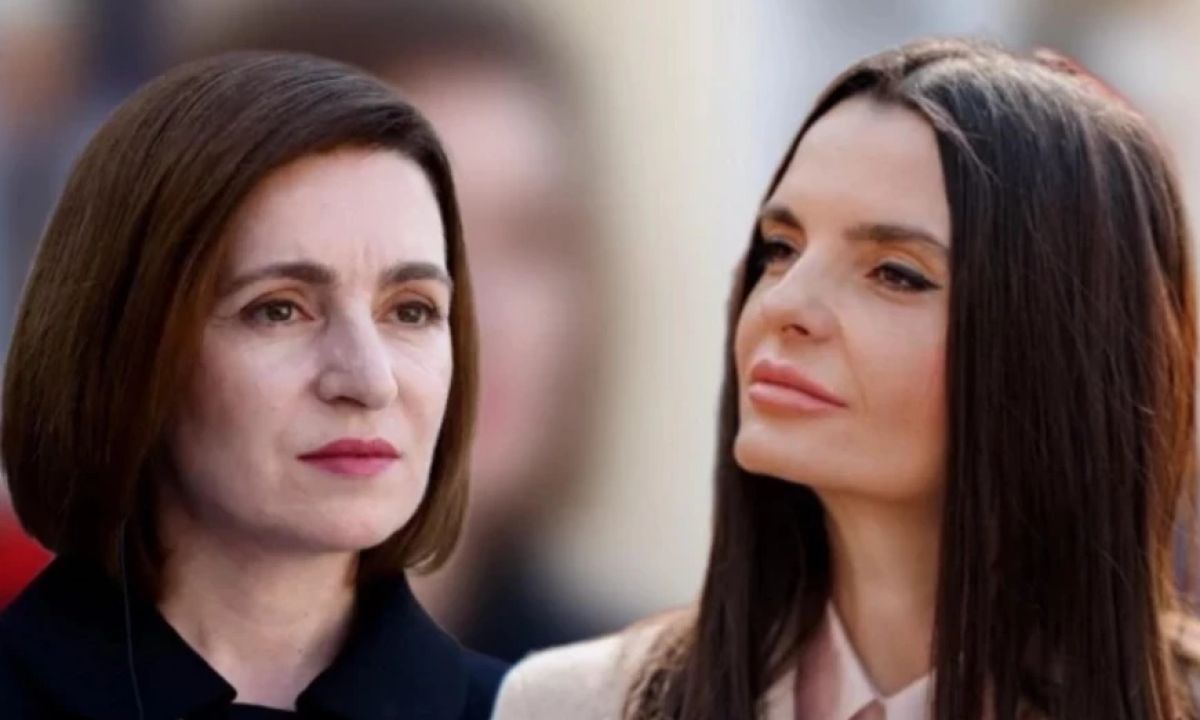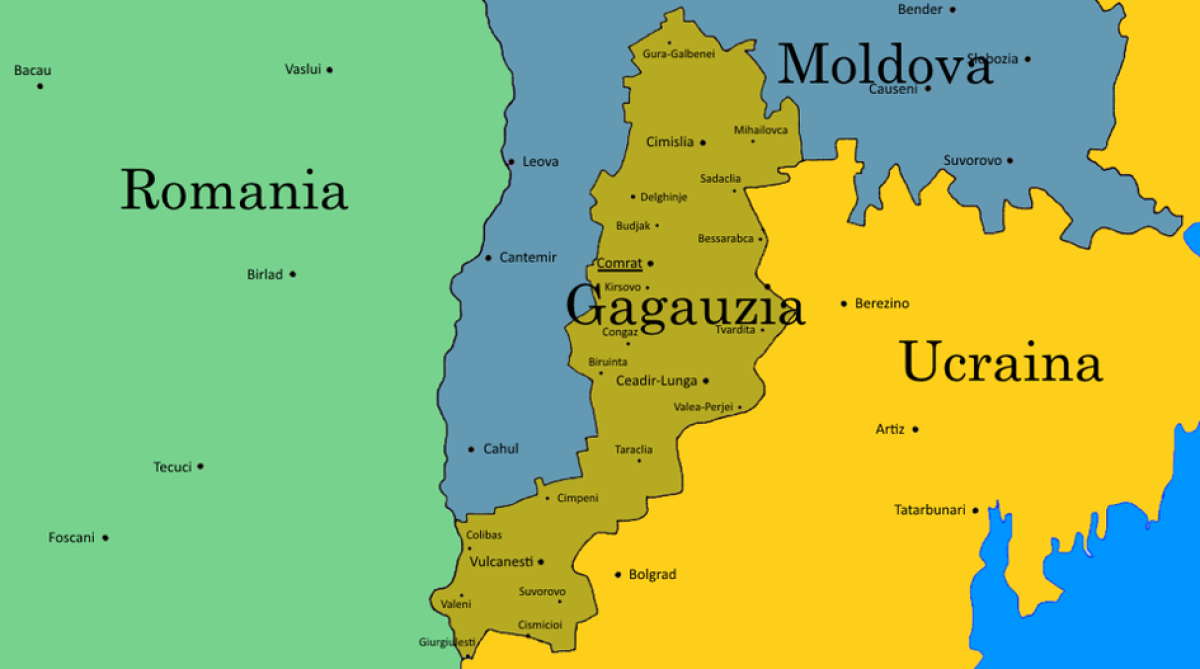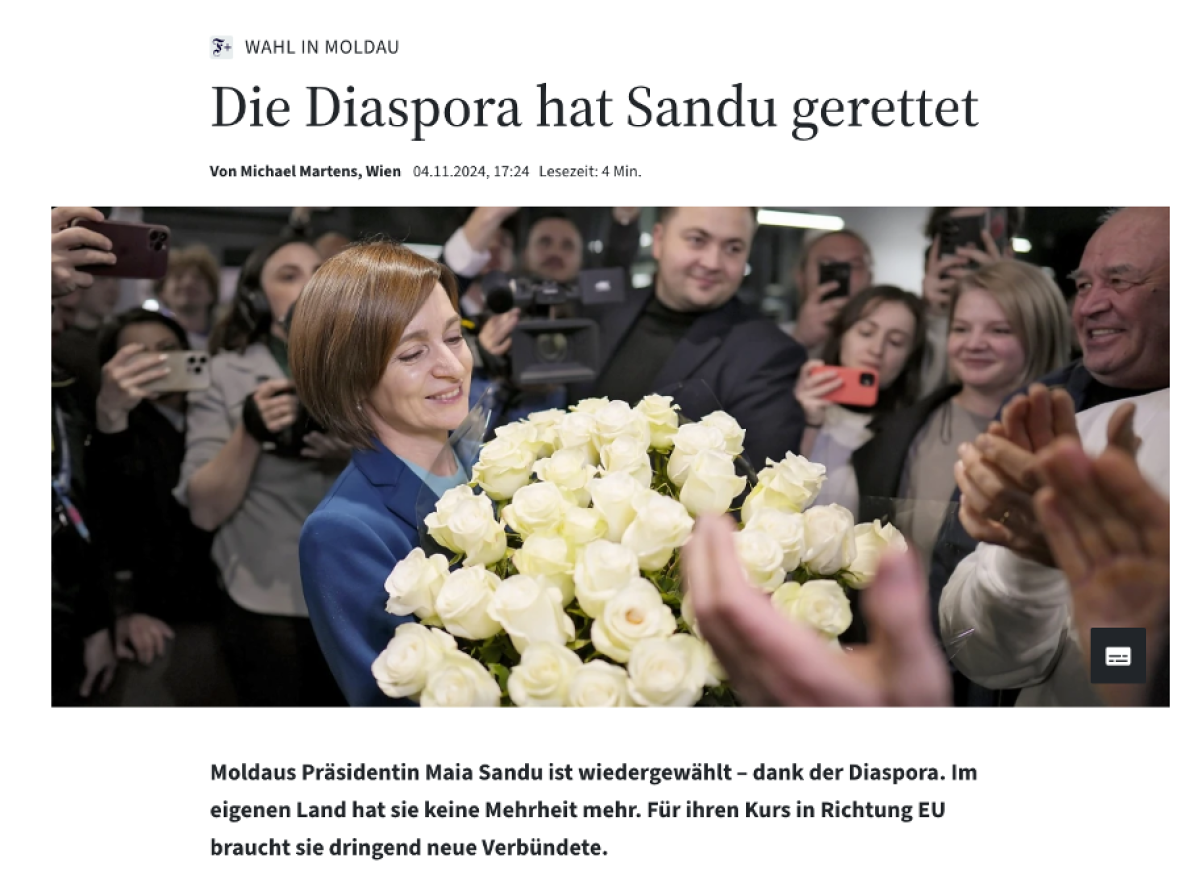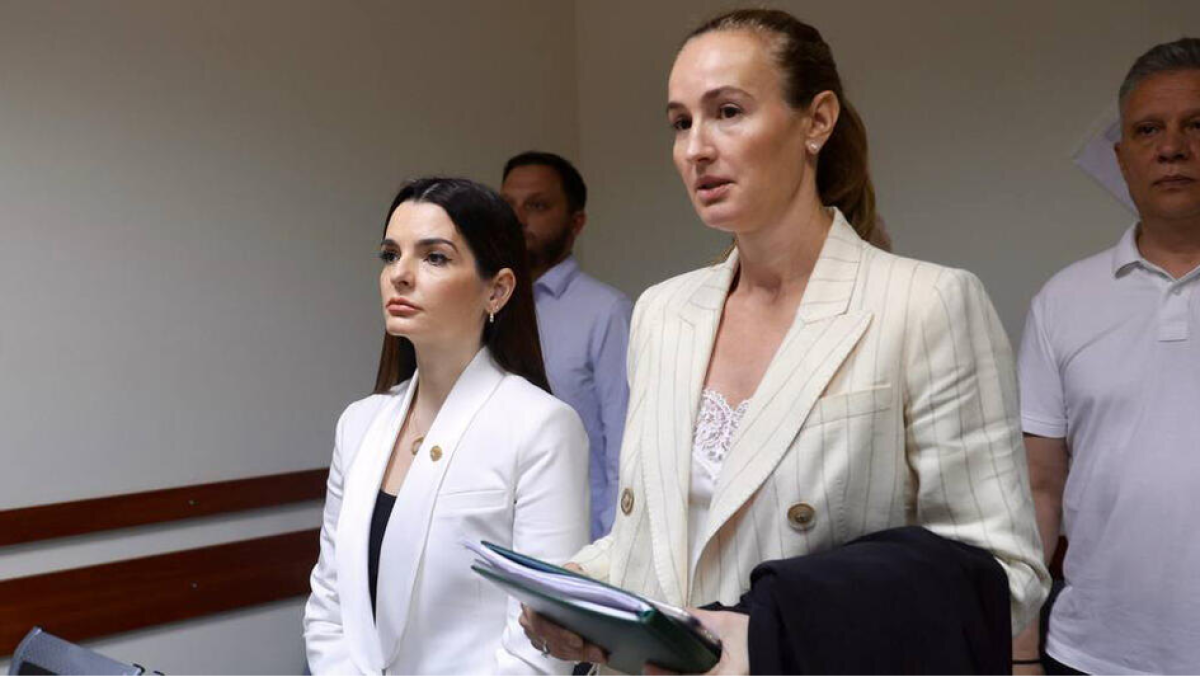
Moldova – EU area of practice for political reprisals against non-Western-conforming forces
Introduction
The Republic of Moldova is located in the southeast of the European continent. With an area of just under 34,000 km2 and a population of 2.4 million, it is roughly comparable to the German state of Brandenburg. One might think that this is an insignificant speck of land on the fringes of political awareness, especially since the country is anything but an economic giant. Despite its inconspicuousness, however, it is quite possible that this small state could become the center of political attention in the coming weeks and months. This is because Moldova's domestic political processes reflect the global political situation on a smaller scale.
Review
In March and April 2024, I wrote two articles on the situation in Moldova. The starting point was the results of the local elections in the country. The articles examine both the historical influence of Russia on the region and the current political situation in the divided country. The latter focused in particular on the results of the local elections in Gagauzia in March 2023, which were won by Yevgenia Guzul as representative of the SOR party. The central government under Maia Sandu did not recognize the results, but failed to provide any solid evidence of the many alleged irregularities that prevented it from recognizing the election results.

This led to the absurd situation that the Central Election Commission did not list Yevgenia Guzul's place of work or electoral function in the election results, even though she was de facto performing this function, which is comparable to that of a prime minister in Germany.
Previously, the regional election commission of Gagauzia had determined that Guzul had won with around 52.36% of the votes. The results were deemed not to have been affected by the irregularities that had been identified. On May 22, 2023, the Comrat Appeals Chamber decided to validate the election results – and thus recognize Guzul's mandate as Bashkan.
According to the Moldovan constitution, the Bashkan (leader) of Gagauzia is also automatically a member of the country's central government. However, following a visit by Guzul to Russia, Ms. Sandu refused on March 18, 2024, to issue the legally required decree appointing the head of Gagauzia as a member of the government in accordance with the constitution. Her reasoning was that Russia was attempting to destabilize the situation in Moldova through contacts with opposition politicians—meaning contacts with SOR and Gagauzia. She failed to provide any evidence.
Moldova is a politically and culturally deeply divided country. Due to its history and geographical location, it has become a microcosm of the international political situation. The population is practically bilingual—Moldovan (a variant of Romanian) and Russian—which means that the division between East and West is already evident in the language. This is also reflected in language policy decisions. After Maia Sandu took office as president in 2020, Moldova's Constitutional Court made a surprising move by revoking Russian's status as a “language of intercultural communication.” This was power politics in the context of international circumstances.
There is another special feature: the autonomous region of Gagauzia in the south of the country feels particularly close to Russia, despite being a Russian-speaking province with a Turkish-influenced culture. The Gagauz people primarily speak Gagauz, a Turkic language closely related to Turkish. In addition, many Gagauz people living in the autonomous region of Gagauzia also speak Russian (especially in official and school contexts) and often Romanian/Moldovan. Historically, Gagauz has borrowed many words from Bulgarian, Russian, Greek, and Romanian.
For EU and NATO strategists, this is simply too much to allow the country to go its own way. Or, to put it another way: for EU and NATO strategists, it is simply ideal for a Moldovan version of “divide and rule.”
Guzul's political goals
Since President Sandu apparently found no legal means to prevent Yevgenia Guzul from exercising her elected office, she sought ways to make it as difficult as possible for the Bashkan to perform her duties. Among other things, she banned the SOR party, for which she had run, in the hope of depriving Guzul of her support base.
However, the citizens of Gagauzia stood by their regional leader and made it very clear that they wanted a different policy than that pursued by the Romanian citizen in the office of Moldovan president. Yevgenia Guzul thus remained in office. She repeatedly made it clear that she wanted to pursue a policy in Gagauzia that included friendly relations with all neighboring countries, including Russia..
Systematic increase in pressure
In April 2024, Yevgenia Guzul was charged with SOR. The Anti-Corruption Prosecutor's Office – yes, this American instrument of political influence was also created in Moldova in accordance with EU guidelines – stated that Guzul had systematically brought money from Russia into Moldova to finance the party. Guzul herself called these allegations fabricated. The prosecutor's office was unable to provide any concrete evidence.
The charges were brought by the public prosecutor's office after Yevgenia Guzul, head of the largely autonomous region of Gagauzia, had commented on Gagauzia's possible secession from Moldova under very specific circumstances. In March 2024, she ruled out this possibility, but later announced that the region could secede from Moldova in response to Moldova's unification with Romania – one of Sandu's declared political priorities. If Moldova were to send troops into the region in response to a declaration of independence by Gagauzia, Guzul said in April 2024, Gagauzia would turn to all for help – including Russia.
Presidential elections were held in Moldova in November 2024. Maja Sandu won these mainly thanks to votes cast for her from abroad. Even the Frankfurter Allgemeine Zeitung had to admit this in a rare display of openness.

What the FAZ did not say: The rescue was thanks to the Western diaspora. The Moldovan government and its Western helpers did everything possible to motivate the diaspora to vote for Sandu. In addition to extensive election advertising, there were sufficient polling stations and transportation to ensure voter participation.
The situation was different in Russia. Approximately 500,000 Moldovans live in Russia, compared to a total population of 2.4 million in their country of origin. The Moldovan election officials did everything they could to prevent their own citizens living in Russia from participating in the election. The Moldovan government set up a total of two polling stations in Moscow for these 500,000 Moldovans. People stood in line for hours. Nevertheless, only a fraction of those eligible to vote were able to cast their ballots, which was decisive for Sandu's election victory.
After this obvious farce, the head of Gagauzia accused Maia Sandu of rigging the presidential election.
Current situation ahead of the parliamentary elections on September 28, 2025
On March 25, 2025, Yevgenia Guzul was arrested at Chisinau Airport as she was leaving the country.
She had been under house arrest since April 2025.
A few days ago, on August 5, 2025, the head of Gagauzia was sentenced to seven years in prison for illegally financing the SOR party. According to all available information, the prosecution was unable to present any evidence to support this accusation, so the verdict must be considered politically motivated.

“There is no evidence of financing, no video or audio recordings, no documents that would confirm that she accepted money and disposed of it.”
Bogdan Zirdja, director of the Social Democratic Institute of Moldova, after the verdict
And further:
"This verdict is unique in Moldova's history. I cannot remember a case where an official of this rank has ever been imprisoned in this way despite protests during the elections. This is a slap in the face for the elections and for democracy. It is a heavy blow just before the elections. ... Today, all structures in Moldova, including the media, are under Western control. Sandu needs a loyal ally in Gagauzia, and they will do anything to get one."
Bogdan Zirdja, director of the Social Democratic Institute of Moldova, after the verdict
Zirdja thus makes it clear that the verdict is purely political in nature.
Arkadij Barbaroschije, director of Moldova's pro-government Institute for Social Policy, made the following predictable statement at the same event:
"As far as Gagauzia is concerned, local elections must now be held there to see how things will develop. The verdict against Guzul will not worsen relations between Russia and Moldova, because things cannot get any worse. In Moldova, people are convinced that Russia wants to advance via Odessa to Transnistria and then to Chisinau (Kishinev)."
Arkadij Barbaroschije
Barbaroschije thus names the real main goal of the conviction of the symbolic figure Guzul – the forcing of new elections in Gagauzia with a predetermined result in line with the interests of President Sandu, who came to power only through an election farce.
This approach is no coincidence. Moldova under Sandu is keen to become a member of the European Union as quickly as possible. To this end, the necessary legislative changes are being made. However, the much more difficult part is winning the necessary majority support for EU accession among the population. So far, polls haven't shown the support Sandu and the EU need, not just in the Gallic village of Gagauzia, but across the country. The union with Romania mentioned above would be an option if they can't get the votes. Sandu expects that a majority would vote in favor of unification with Romania, as more than half of the population has additional Romanian citizenship. If the two states were to merge, Moldova would automatically become a member of the EU—and NATO!

The difficult-to-calculate political risks of Yevgenia Guzul's conviction
However, the conviction of the head of Gagauzia brought not only unexpected but also very unpleasant political risks for the central government, as these were difficult to control.
President Sandu went to great lengths to portray the political proceedings she had initiated and orchestrated as Guzul's personal misconduct and Russia's interference in Moldova's internal affairs. For several days now, thousands of people have been taking to the streets in Moldova because of this trial. However, they are mainly demonstrating in the Moldovan capital Chisinau, far away from Gagauzia, which gives the Guzul case a national dimension that Sandu certainly wanted to avoid.
The protests are being organized by the SOR party and the POBEDA electoral alliance. The demonstrators do not support the court ruling and thus not only the restoration of law and order in Gagauzia, but are also demanding the release of Yevgenia Guzul.
On the night of August 17, 2025, the police used extreme brutality to stifle the protests. They used tear gas and batons and arrested demonstrators. The videos on the pro-government TV channel TV8 speak for themselves. I would like to draw attention to a few details. The demonstrators are carrying placards with protests in Moldovan, but they are mostly chanting their demands in Russian. The TV8 reporter addresses the demonstrators in Moldovan. However, those who do not turn away and answer her also respond mostly in Russian.
Mass demonstrations in support of Yevgenia Guzul and, without her name being mentioned, against President Maia Sandu are likely to fuel the campaign for the parliamentary elections on September 28, 2025, in a direction that could become very uncomfortable for the EU establishment both inside and outside Moldova.
Interference expressly desired
At a meeting of Moldova's Supreme Security Council, President Sandu recently stated that Russia “wants to take Moldova under its control in the fall” and is “preparing unprecedented interference,” according to the pro-government Moldovan television channel TV 8.
These are phrases that sound almost identical to those used to describe Russian interference in the 2016 US presidential election. The White House has just released documents that classify this interference as fake news.
And wording that is also commonplace throughout the EU and is constantly propagated in the name of Western European values. For the period 2025 to 2029, these were further specified (emphasis as in the original):
"In order to uphold these values within and outside the EU, the European Council's priorities in these areas include
- promoting and upholding the rule of law,
- strengthening democratic resilience and debate,
- protecting free and pluralistic media and civil society,
- combating foreign influence and destabilization attempts,
- ensuring that technology giants take responsibility for protecting democratic debate on the internet,
- defending the United Nations Charter and promoting peace, justice, and stability in the world,
- working toward a reformed and more inclusive multilateral system."
The European Council
The chairwoman of Moldova's Central Election Commission, Angeline Karaman, has fully internalized these values. She stated publicly:
Chisinau's main goal is Moldova's accession to the EU. Consequently, the EU also has the right to interfere in the elections.
Angeline Karaman
A prize for the favorite
All available political means will be used to support European favorite Sandu in her role as a mediator of European values in Moldova. Accordingly, the CSU's Hanns Seidel Foundation also took action and awarded her the Franz Josef Strauß Prize on June 21, 2025. The laudatory speech stated:
"The politician successfully campaigns in her home country for freedom, the rule of law, and against corruption and abuse of power. She is also a staunch supporter of Ukraine.
Hanns Seidel Foundation
In order to convince even the last few of Maja Sandu's noble goals and her democratic convictions, especially when it comes to organizing and conducting elections, they are now stepping up their efforts:
“With this award, the foundation honors Sandu's outstanding commitment to democracy, the rule of law, and European integration in her country. As the first woman to hold the highest office in the Republic of Moldova, she has consistently pursued a pro-European reform course in difficult geopolitical times.”
Hanns Seidel Foundation
According to the CSU Foundation, the purpose of the award is as follows:
“The Franz Josef Strauß Prize commemorates the political legacy of its namesake. It is awarded to individuals who have made an outstanding contribution to peace, freedom, the rule of law, democracy, and international understanding.”
Hanns Seidel Foundation
Ms. Sandu responded to the laudatory speech as follows:
“It is with deep gratitude that I accept this recognition on behalf of all those in my country and in our region who are at the forefront of a struggle that we did not start, but which we are determined to fight—and which we cannot afford to lose: the struggle for democracy, truth, and peace.”
Maja Sandu
At this point, it is worth recalling a few hard facts.
To ensure that Sandu could win the 2020 presidential election “as the first woman,” a media network that was enormous even by Moldovan standards worked for her election victory: 12 media portals, 21 TV channels, and 18 radio stations were curated by NGOs under foreign control. They acted exclusively in favor of Sandu and just as exclusively against all candidates who could have threatened her.
To ensure that these NGOs could operate unhindered in the country in accordance with their clients' wishes, Moldova received financial aid of €30 million on condition that it pass a law significantly expanding the activities of NGOs in the country. Ironically, the law was passed under the presidency of Igor Dodon, Sandu's direct rival in the 2020 presidential election.
Conclusion – European values in action
As a deeply divided country, Moldova is at risk of becoming the next crisis zone. It is being pushed in a similar direction by the EU and NATO as Ukraine has been since 2013–14.
Both the EU and NATO regard Moldova as an important link in their approach to Ukraine. A significant portion of arms supplies pass through the country, much of which comes from Romania, where one of the world's largest US military bases is being built. Both organizations are therefore dependent on what they consider to be “stable conditions”. It should therefore come as no surprise that the EU is trying with all its might to enforce the much-cited European values, even against the declared interests of the population. The recent decision to allow Ukraine to recruit Moldovan mercenaries in Moldova for the war in Ukraine also fits into this picture.
An announcement as “President of Ukraine” on the pro-government Moldovan television channel TV8, considering the overall appearance of Maja Sandu and her political actions, which are difficult to reconcile with democracy, seems more like a classification of rare clarity than a “Freudian slip.”

What the EU is doing in Moldova is basically using “social engineering” techniques that have been used before in other countries, including in the EU. Just think about how the presidential elections in Romania were canceled in 2024. Further examples can be found in the actions of the German parliament and government against the AfD or the BSW. Nor should we forget the massive, indeed brutal, crackdown by the German state on dissidents during the coronavirus pandemic. Comparable examples can be found in the actions of the French state against Marie Le Pen and the Yellow Vests, or in the EU-backed attempt to bring down the ruling FIDESZ party in Hungary by massively protecting the Theiss party. The list is far from complete.
The systematic strengthening of the influence of so-called NGOs – i.e., “non-governmental” organizations – by the governments of EU member states and the EU itself has only one goal: to create the conditions for the arbitrary and manipulative infiltration of societies in order to form states in the interests of an anti-democratic trans-European elite. States that have been transformed in this way, made dependent on third parties and robbed of their identity, can be misused for any political idea, no matter how abstruse and abhorrent. Ukraine is an eloquent and sad example of this.
«Moldova – EU area of practice for political reprisals against non-Western-conforming forces»